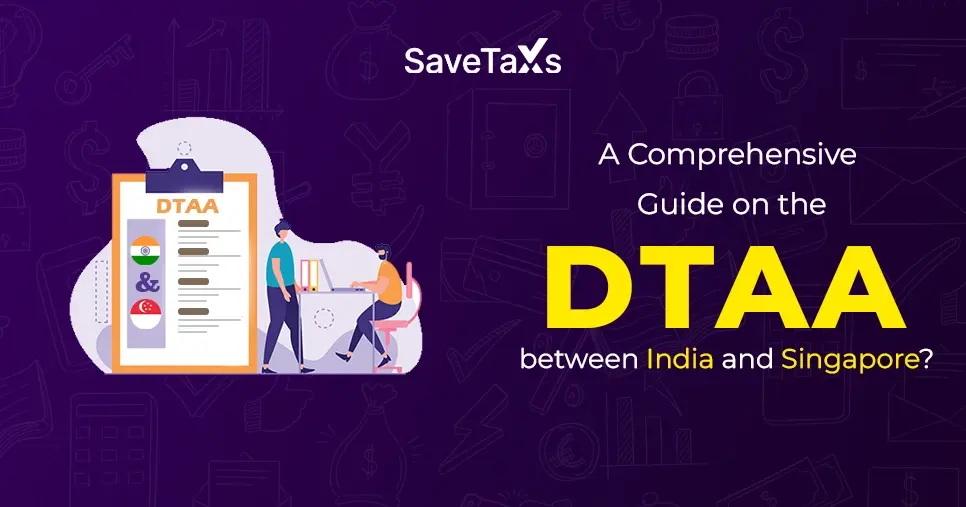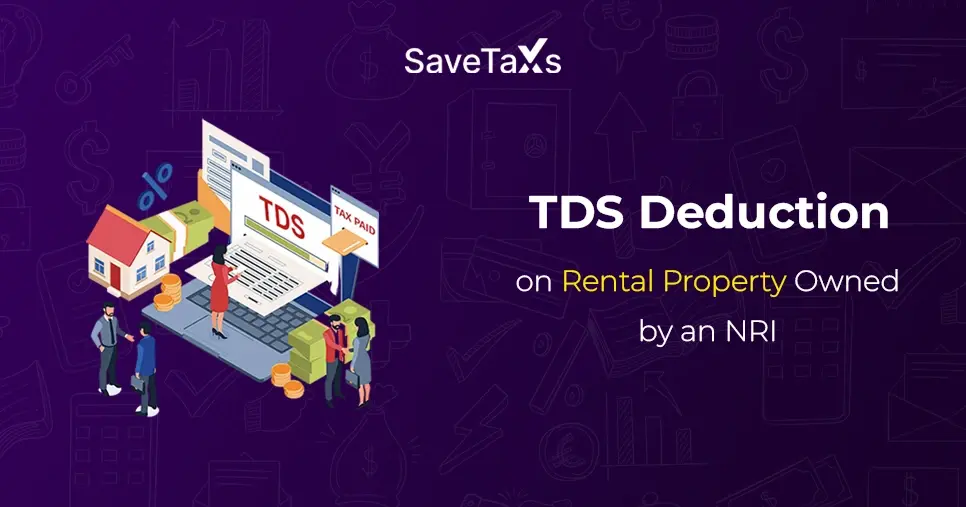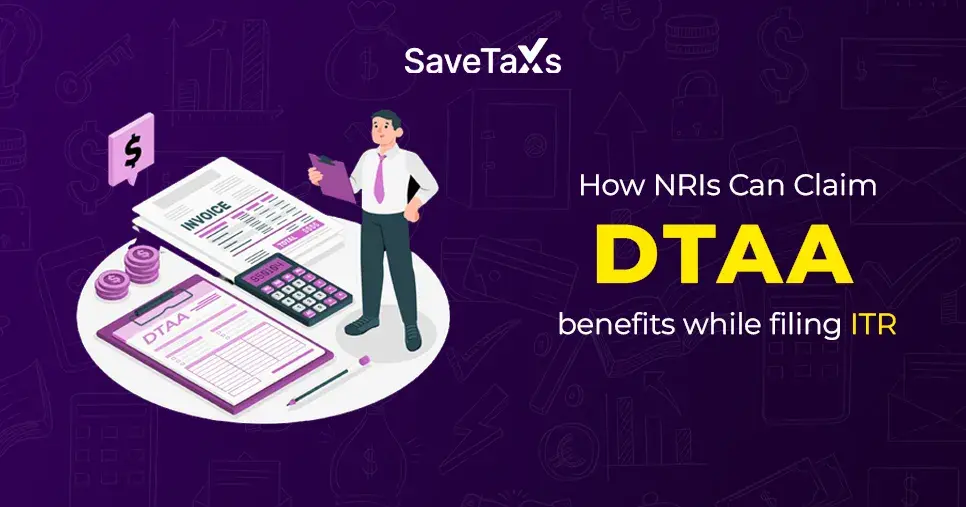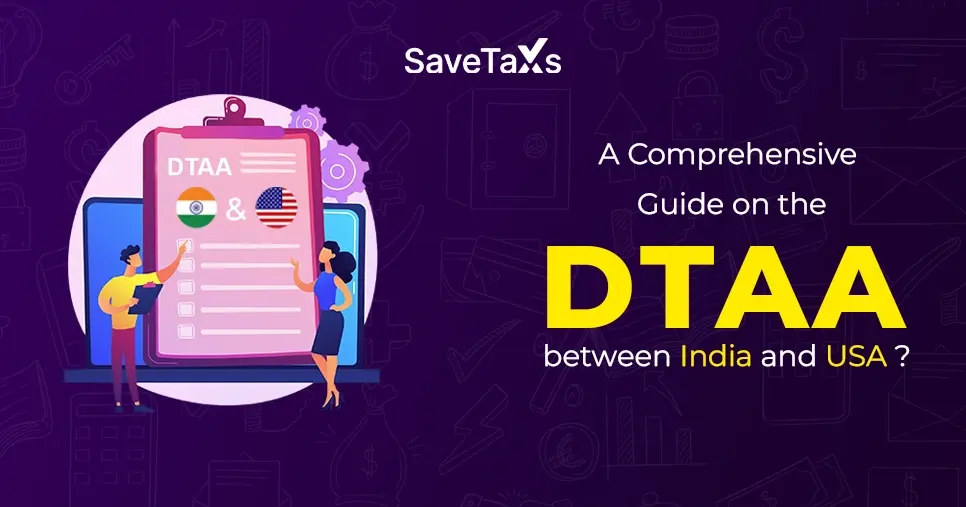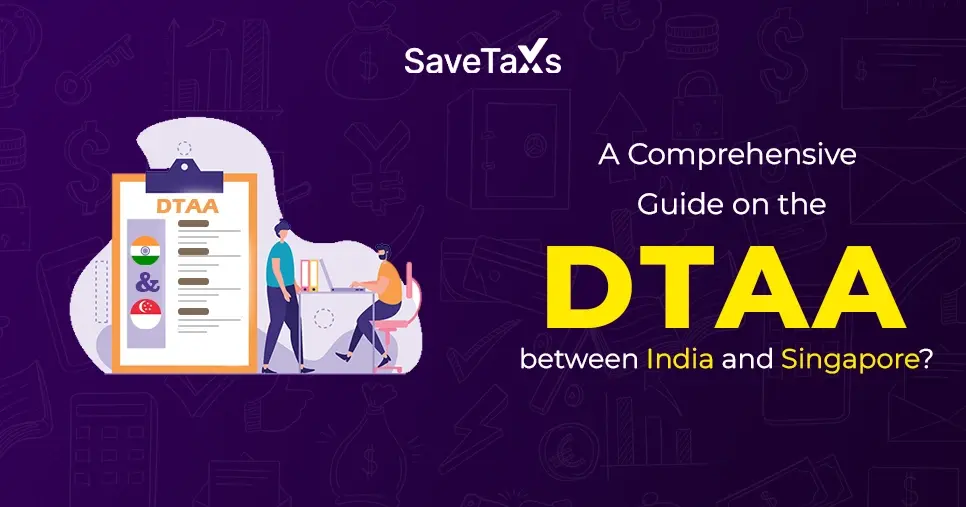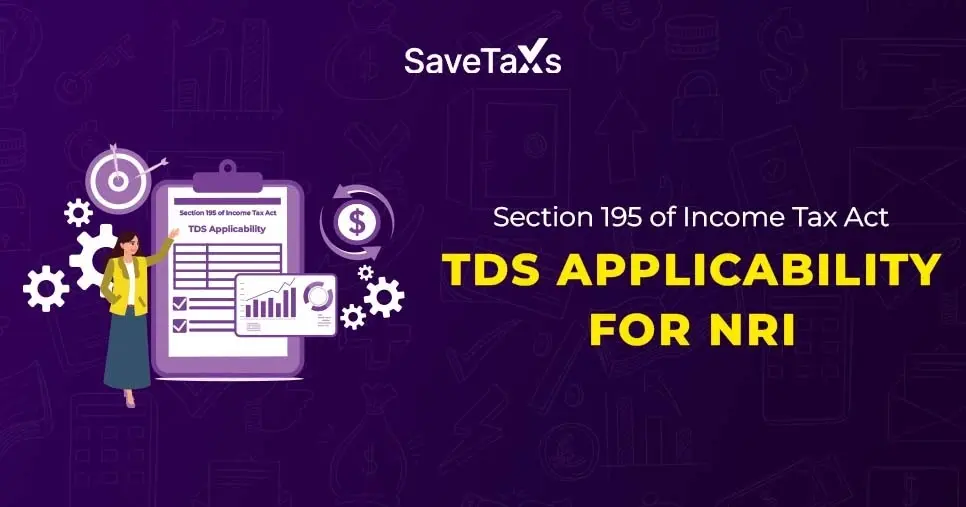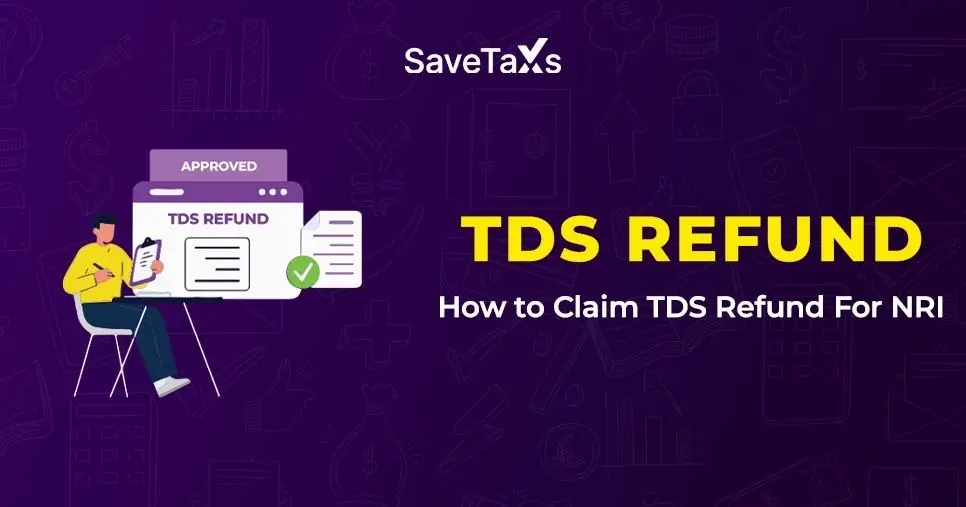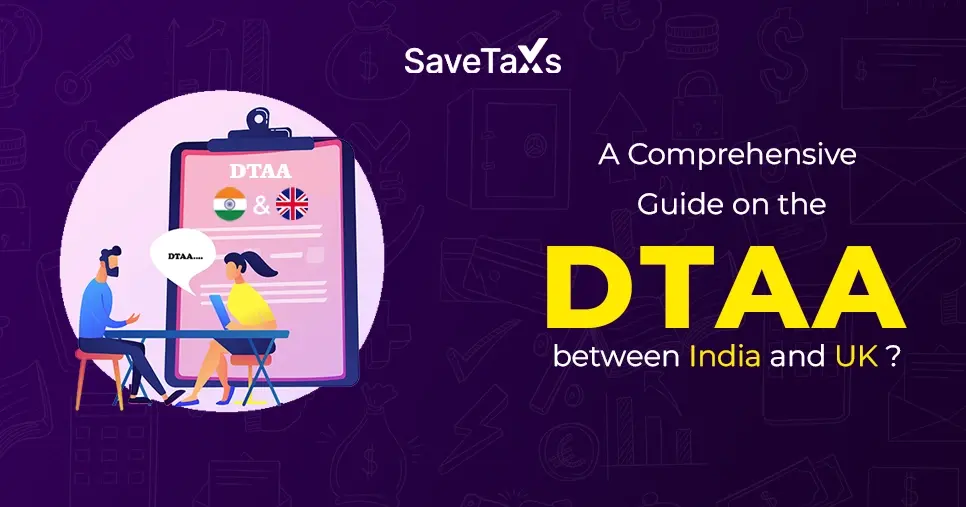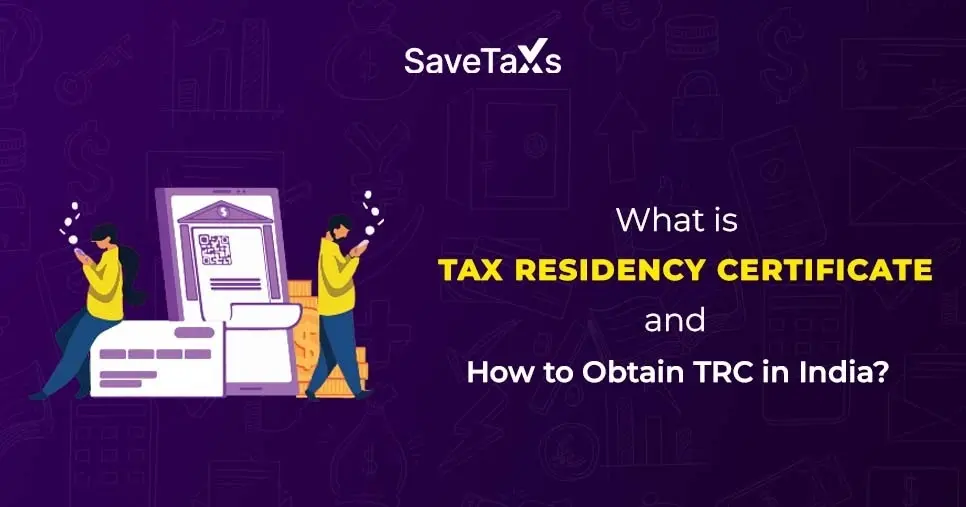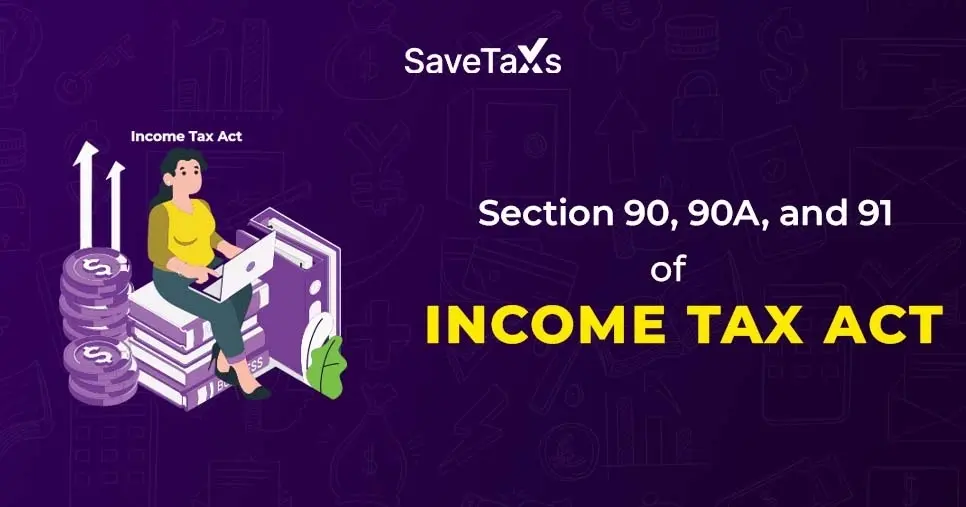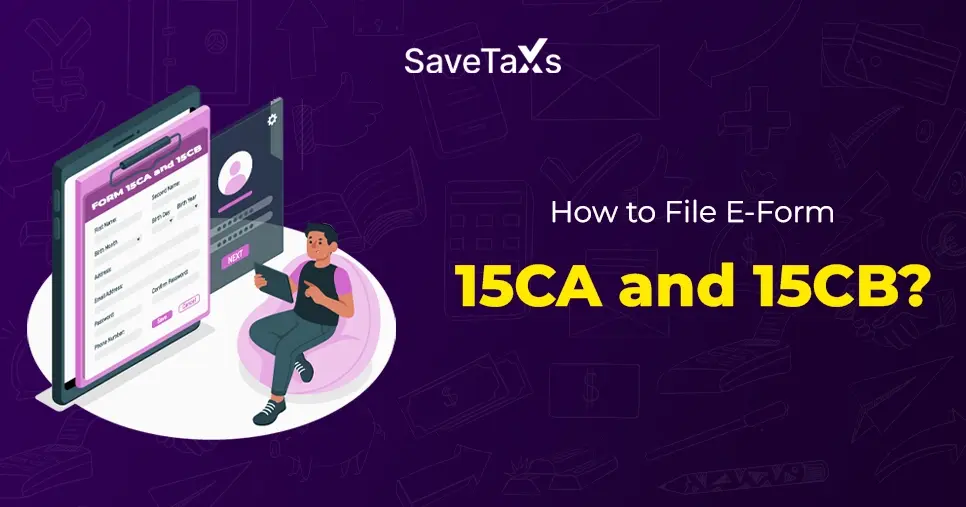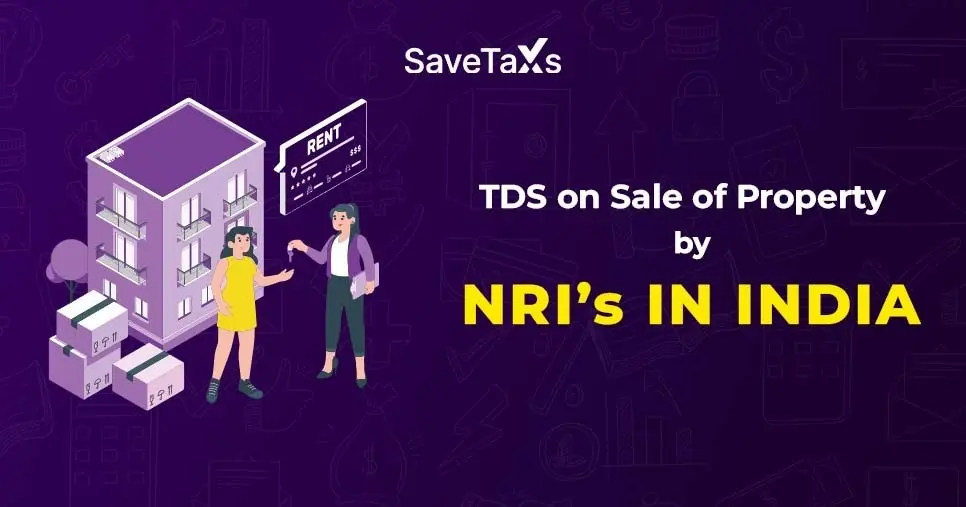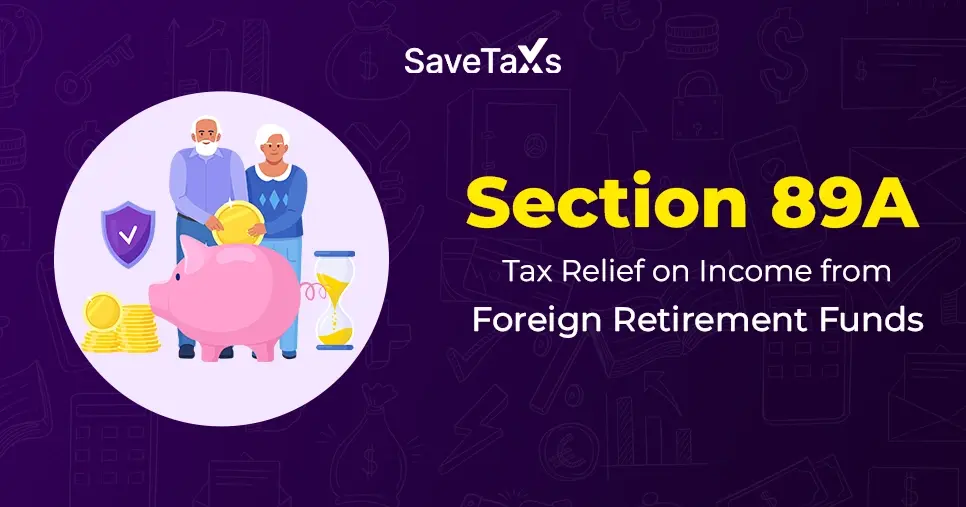When discussing international taxes, the India-Singapore Double Taxation Avoidance Agreement (DTAA) has had a significant impact. The Government of India has signed a Double Tax Avoidance Agreement (DTAA) with Singapore to help taxpayers avoid being taxed twice on their foreign income. This is primarily beneficial for Indian business owners planning to expand their businesses and individuals earning income abroad. Under DTAA, taxes paid in one country can be credited in another, ensuring tax is effectively paid in only one country.
This agreement applies to taxpayers residing in either India, Singapore, or both. India has signed a similar agreement with nearly 100 other countries. The DTAA between India and Singapore benefits both nations regarding tax benefits and promotes economic growth. In this blog, we will discuss everything about the DTAA treaty between India and Singapore. Additionally, we will explore its effectiveness in various aspects.
What is the DTAA Between India and Singapore?
The DTAA between India and Singapore aims to prevent double taxation on income sourced from these countries, thereby eliminating the tax burdens for residents of both these nations. This agreement was signed in 1994 and last amended in 2017. According to the latest amendment, it comprises the Multilateral instruments of the OECD (The Organization for Economic Cooperation and Development). According to this treaty, a Singapore resident earning income in India is eligible to enjoy the same tax treatment as Indian residents earning income from India.
The DTAA also alleviates various types of taxes on income, such as royalties, interest, or fees for technical services, making it easier for all Singapore-based businesses to invest in India by reducing the overall tax liability or earnings from India. Additionally, the DTAA between India and Singapore has facilitated improvements in investment and trade relations between the two countries. Singapore is one of the largest foreign investors in India, with significant investments in various sectors, including infrastructure, real estate, and finance. This treaty facilitates stable and predictable economic growth. India has signed the DTAA with several other countries, including the India-USA DTAA.
What is the Importance of India-Singapore DTAA for Both Countries?
The importance of the India-Singapore DTAA depends on its improvement of international relations and growth in trade and investments. By preventing double taxation, Singaporean investors can invest comfortably in Indian companies or establish their company branches in India.
Furthermore, the DTAA between India and Singapore also helps prevent tax evasion and facilitate the free flow of trade and commerce. It ensures that individuals from one country are taxed only in their home country, regardless of the source of their income.
This agreement is also crucial for promoting information exchange and cooperation between the tax authorities of both countries, thereby helping to prevent tax evasion and enforce tax regulations in both countries. Taxpayers from either nation can also benefit from lower TDS rates, tax credits, and exemptions.
What are the Taxes Covered Under the DTAA?
- The rules of the India-Singapore tax treaty apply to both countries, meaning India and Singapore. This agreement covers different types of taxes as mentioned below:
- Taxes specified in the agreement:
- In India, Income Tax, including surcharge. It is also referred to as Indian Tax.
- In Singapore, Income Tax is also known as "Singapore Tax".
- This treaty applies to similar taxes imposed by either country after the signing date of the agreement, with authorities required to inform each other of any changes to tax laws.
What are the India-Singapore DTAA Rates?
Concerning tax rates, several different income sources are subject to withholding tax. For example, Singapore shareholders receiving dividends from Indian companies are subject to a 15% tax on gross dividend income. In comparison, dividends paid by Singaporean corporations to Indian residents are taxed at a maximum of 10% in Singapore. A maximum withholding tax of 10% applies to interest and royalties from an Indian resident to a Singaporean resident. Additionally, a maximum rate of 15% applies to payments made by a Singaporean resident to an Indian resident.
Other types of income, including gains from immovable properties, shipping or airline profits, business profits, employment income, and government payments, are typically taxed in the country of origin.
Capital Gains Taxation Under the India-Singapore DTAA
Article 13 of the DTAA between India and Singapore contains the provision for taxation of capital gains. The following are the provisions:
- Gains from selling aircraft or ships used for international operations or any movable property related to such operations of aircraft or ships are taxed according to the taxpayer's country of residence.
- Additionally, gains from the sale of immovable property in another country may also be subject to taxation in that country.
- Capital gains from shares acquired after April 1, 2017, are taxed in the country where the company is registered. For example, gains on the transfer of shares in an Indian company are taxed in India, irrespective of the transferor's residency.
- All other capital gains are subject to taxes in the taxpayer's country of residence.
Point to Note: Since mutual fund units are considered as other assets, rather than shares, they are subject to taxation in the country where the assessee is a resident.
Taxation of Employment Income Under the DTAA
The taxation of employment income under the DTAA is governed by Article 15, dealing with the taxation of employment-related income or salary income. It states that remuneration earned by a resident of one country while employed in another country is taxable primarily in the resident's country of residence. Below are the provisions of this tax:
- Income earned by a resident of one contracting state who is employed in another contracting state will be taxable in the former state.
- Any income derived from employment on a ship or aircraft that is operated internationally by an enterprise from a contracting state is also taxed in that state.
However, the taxation may depend on the taxpayer's country of residence rather than the country where the employment is situated. The following conditions are applied in this scenario:
- Payment is not made through a permanent establishment or a fixed base in the country where the employment occurs.
- Salaries and wages are paid by an employer who is a non-resident of the country in which the work is performed.
Taxation on Income From Immovable Property
The DTAA (Double Taxation Avoidance Agreement) between India and Singapore states that income from renting out an immovable property will be taxed in the country where the property is situated.
To Conclude
The India-Singapore DTAA serves as a vital link for enhancing economic ties between the two nations. Both businesses and individuals can benefit from relief from double NRI taxation, which in turn promotes trade and investment. Hence, if you are concerned about your tax responsibilities related to income from Singapore, the DTAA provisions will help you in achieving fair taxation on your total income. Try to ask for assistance from the experts at Savetax. Their team can help you optimize your tax liabilities and ensure compliance with the treaty provisions. They can help you navigate the complexities of the India-Singapore DTAA easily, saving you from facing any issues.
 PAN Card for NRIsApply Easily from Anywhere
PAN Card for NRIsApply Easily from Anywhere_1751708048_1752232060.webp) NRI Income TaxFile Returns, Save Tax Smartly
NRI Income TaxFile Returns, Save Tax Smartly NRI Repatriation ServicesMove Funds Abroad Legally
NRI Repatriation ServicesMove Funds Abroad Legally_1751707492_1752231906.webp) NRE Account ServicesSeamless Banking for NRIs
NRE Account ServicesSeamless Banking for NRIs_1751707439_1752231826.webp) NRO Account ServicesManage Indian Income Easily
NRO Account ServicesManage Indian Income Easily NRI Business SolutionsStart & Grow in India
NRI Business SolutionsStart & Grow in India LLP RegistrationSecure & Scalable Setup
LLP RegistrationSecure & Scalable Setup OPC RegistrationRegister Your One Person Company with Us
OPC RegistrationRegister Your One Person Company with Us Patnership Firm RegistrationNRI Patnership Firm Registration Support
Patnership Firm RegistrationNRI Patnership Firm Registration Support NRI RepatriationTransfer Funds Abroad Easily
NRI RepatriationTransfer Funds Abroad Easily Pan Card for NRIsApply for PAN from Anywhere
Pan Card for NRIsApply for PAN from Anywhere Income Tax For NRIFile Your Taxes from Abroad
Income Tax For NRIFile Your Taxes from Abroad NRI Capital GainsGain on sale of capital assets in India
NRI Capital GainsGain on sale of capital assets in India_1752468380.png) Double Tax Avoidance Agreement (DTAA)Agreement to avoid double taxation
Double Tax Avoidance Agreement (DTAA)Agreement to avoid double taxation Income Tax NoticeRespond to Tax Department Notices Easily
Income Tax NoticeRespond to Tax Department Notices Easily NRI Status & TaxationDetermine Your NRI Status for Accurate Tax Filing
NRI Status & TaxationDetermine Your NRI Status for Accurate Tax Filing ITR 2Form ITR-2 for Individuals & NRIs
ITR 2Form ITR-2 for Individuals & NRIs_1752656787.png) ITR 3ITR-3 for NRIs with Business Income
ITR 3ITR-3 for NRIs with Business Income Form 16Proof of TDS on Salary
Form 16Proof of TDS on Salary NRI Tax Slab and RatesAnnual Tax Rates for NRIs in India
NRI Tax Slab and RatesAnnual Tax Rates for NRIs in India Residential StatusDetermine Your Tax Residency with Section 6 Rules
Residential StatusDetermine Your Tax Residency with Section 6 Rules NRI PAN V/s Normal PANChoosing the Right PAN Card
NRI PAN V/s Normal PANChoosing the Right PAN Card